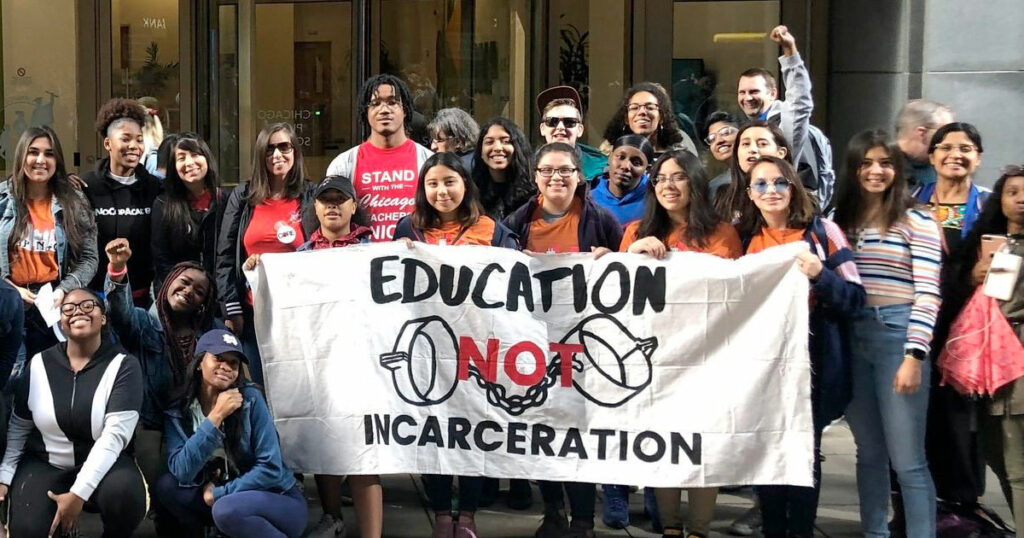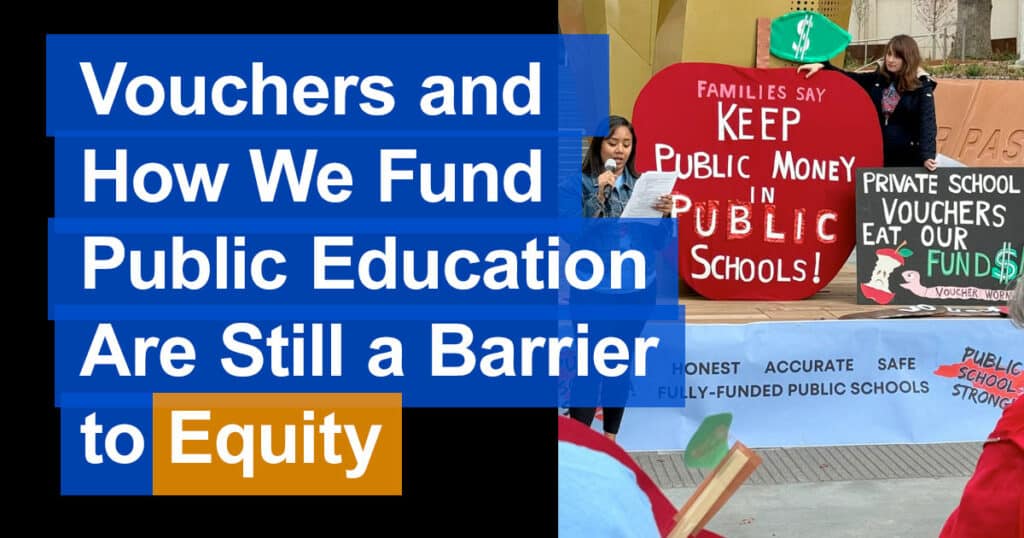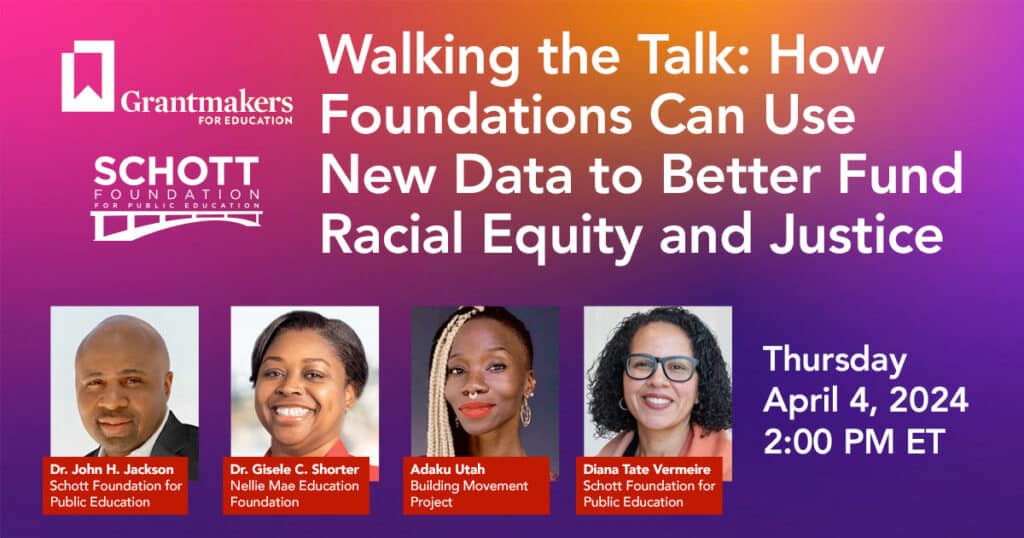Blog
Have Students Returned to Classrooms or to the School-to-Prison Pipeline?

What good is returning to a classroom when a police officer can drag you out of it? In the face of the promise of re-opened schools, students, parents, and educators across the country are holding up the reality of the school-to-prison pipeline.
An ACLU of Southern California report from August shows how the presence of police in schools drastically increases arrests overall, disproportionately impacting BIPOC students and those with disabilities. The report found:
- Black students’ arrest rates are 7.4 times higher in schools with assigned law enforcement than in schools without, and their law enforcement referral rates are 4.7 times higher.
- Latine students’ arrest rates are 6.9 times higher in schools with assigned law enforcement than in schools without, and their law enforcement referral rates are 4.4 times higher.
- Students with disabilities’ arrest rates are 4.6 times higher in schools with assigned law enforcement than in schools without, and their law enforcement referral rates are 4.8 times higher.
The wave of victories for police-free schools we’ve seen over the past few years, largely led by Schott grantee partners the Dignity in Schools Campaign and Alliance for Educational Justice, has meant that many students have returned to schools without that carceral risk hanging over them.
Examples of this transformed school climate can be found in Oakland, California. This week, Black Organizing Project’s Jasmine Williams published key lessons learned from Oakland’s move to police-free schools: “The story of Oakland’s efforts to eliminate school policing highlights four important lessons for California and the nation about what it truly takes to stop the criminalization of young people and their families.” The four lessons are:
- It takes an understanding that school policing harms students of color and Black students in particular.
- It takes organizing and political will.
- It takes a genuine commitment to changing school culture.
- It takes follow-through and a community-wide commitment to change.
Black Organizing Project played a central role in building the grassroots momentum and pressure to move Oakland Unified School District to remove police from its schools. This victory and the struggle that preceded it should be instructive for communities across the country. But Williams also reminds us that the work doesn’t just end with a policy change, or a new budget item: creating and maintaining a safe and supportive school climate is an ongoing process.
As the essay concludes, “Our experience in Oakland shows a powerful path to creating a caring culture in our schools — and throughout the community — that upholds the dignity and possibility of every child.”


